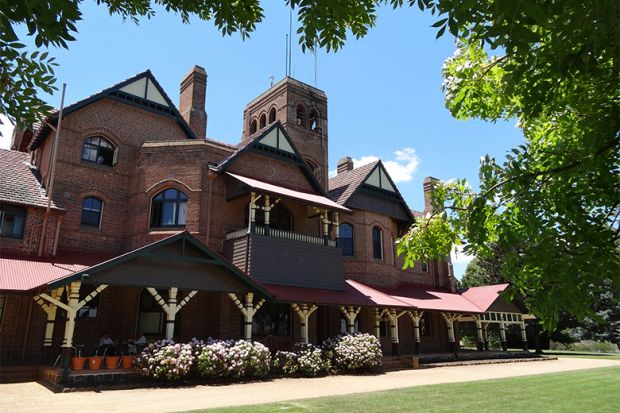Research at a regional Australian university campus suggests that about one in seven female residents have been victims of attempted sexual assaults, with offenders sometimes being banned from drinking instead of being reported to the police.
A survey of students living at the seven residential colleges of the University of New England, in inland New South Wales, found that roughly 4 per cent suffered sexual assaults on college premises, with women three times as likely to be attacked as men.
The study says that degrading initiation rites still took place despite being “explicitly prohibited” by the university, and that student leadership roles at the college were disproportionately allocated to male residents – some of whom “are themselves the perpetrators”.
The findings were outlined in a 192-page report by the Australian Human Rights Commission. The university has accepted all 25 recommendations relating to colleges under its control, and said that work towards implementing 17 of them is already underway.
Vice-chancellor Annabelle Duncan said that changes so far included increasing the proportion of female student college leaders, banning alcohol sponsorship of UNE colleges, and arranging after-hours professional support for students.
UNE said that St Albert’s College, which is managed independently of the university, had agreed to implement another three recommendations relating to its operations.
The new study was commissioned in response to the commission’s 2017 report on sexual offences across Australia’s universities, which found that problems were rife at residential colleges.
The rate of sexual assault reported on campus at UNE was more than twice the national average and the highest of any university. UNE was also criticised in the 2018 Red Zone report by activist group End Rape on Campus, which claimed that a serial offender had been punished with a day’s community service.
The Red Zone also described hazing activities at St Albert’s College, such as new students being forced to eat red and green food before drinking sessions – so that their vomit would match the college colours – and to recount their sexual activities at a weekly “morality court”.
The new report outlines a close link between sexual misconduct and college drinking culture, and offers three recommendations to curb it. These include overhauling responses such as “alcohol bans” imposed on residents guilty of “problematic” drinking.
The report details claims that some perpetrators of sexual harassment or assault have been punished with two-week drinking bans, and that victims’ protests at the inadequate sanctions have fallen on deaf ears.
It says that alcohol bans can “heighten the symbolic significance of drinking”, encouraging “more harmful consumption” and driving risky drinking underground. It warns against a mandatory midnight curfew on college parties, for the same reason.
The report offers five recommendations on governance and organisational structure and seven on the policy response to sexual harassment and assault. It says that multiple university and college-specific policies have spawned “fragmented, inconsistent and ineffective responses”.
It prescribes better counselling services for victims and for student leaders who experience “vicarious trauma” as first responders. But it also recommends a “no-tolerance” approach to leaders accused of sexual misconduct. “They should temporarily suspend their leadership responsibilities pending the outcome of a formal investigation,” the report says.
Sex discrimination commissioner Kate Jenkins commended UNE for commissioning the report. “This is indicative of strong leadership and governance, and is crucial to effecting cultural change,” she said.




